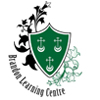Building vocabulary makes a crucial difference to ISEB CPT success
464 words
There are THREE language dependent sections to the ISEB CPT (ISEB Pretest) – English (of course), verbal reasoning (of course) and the one which will suprise you… maths
Your child of 10 will be able to work out 18-3÷3= in seconds but how about: three friends buy a cake and cut it into eighteen pieces. They all have one piece each. If they are shared out equally, how many of the remainding slices will each child get?
MUCH HARDER!
Join our 4pm vocabulary lessons for 8+ and 10+
Expanding a child’s vocabulary between the ages of 8 and 11 is a crucial step in their early language development. At this stage, children are not only preparing for academic success, such as the ISEB Common Pre-Tests (CPT), but they’re also enhancing their communication skills and understanding of the world. Let’s explore some effective strategies and games that can help build a better vocabulary for your child.
Importance of Vocabulary Development
A rich vocabulary is foundational for reading comprehension and effective communication. As children grow, their ability to understand and use complex words improves, which is essential for academic success and social interactions. By focusing on vocabulary building, you can help set your child up for success in school and beyond.
Reading Together
Reading is one of the most effective ways to enhance vocabulary. Encourage your child to read a variety of genres, including fiction, non-fiction, and poetry. Discussing the stories and new words they encounter can deepen their understanding and retention. Make reading a shared activity by taking turns reading aloud, which can also improve pronunciation and fluency.
Vocabulary Building Games
Games are a fun and interactive way to learn new words. Here are a few you can try:
Word Puzzles
Crossword puzzles and word searches are excellent tools for introducing new vocabulary. They encourage children to think about word meanings and spellings while having fun.
Scrabble and Bananagrams
These classic games are fantastic for promoting strategic thinking and vocabulary expansion. They require players to form words from a set of letters, encouraging creativity and problem-solving.
Vocabulary Apps
In our digital age, there are numerous apps designed to make vocabulary building engaging and interactive. Look for apps that offer word games, quizzes, and challenges tailored for your child’s age group.
Encouraging Conversation
Engaging your child in conversations about various topics can significantly enhance their vocabulary. Encourage them to express their opinions and ideas, and introduce them to new words during discussions. Ask open-ended questions that stimulate critical thinking and require more than yes or no answers.
Writing Exercises
Encourage your child to keep a journal or write stories. Writing helps children practice using new vocabulary in context. You can provide them with writing prompts or let their imagination run wild. Reviewing their work together offers an opportunity to introduce new words and correct any mistakes.
Conclusion
Building a robust vocabulary for 9 to 11-year-olds involves a combination of reading, playing games, engaging in conversations, and writing. By incorporating these activities into your child’s routine, you’ll not only help them prepare for the ISEB CPT but also equip them with the skills necessary for lifelong learning and communication. Keep the learning process fun and interactive to maintain their interest and enthusiasm.

